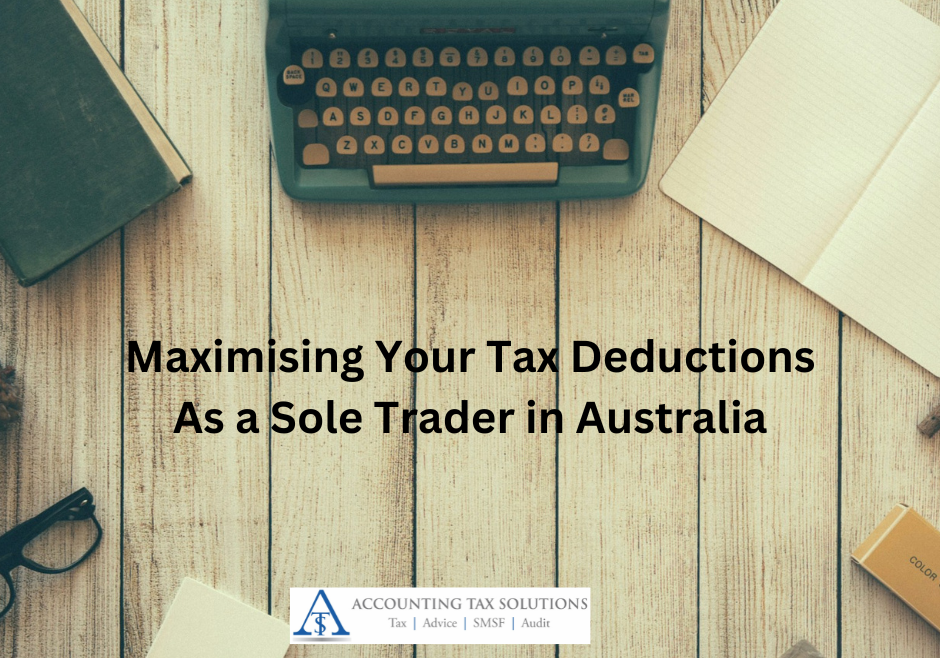
Sole traders are individual business owners who sometimes employ a workforce to provide goods and services to customers. When registering for this business structure, you become liable for paying all work and employment-related taxes, including superannuation.
While this can seem like a long line of bills, there are multiple ways to reduce your overall costs. Read on as we confirm which deductions sole traders can claim.
Which Deductions Can Sole Traders Receive?
Sole traders can usually claim any business-related expense, including the following:
Operational Costs
As of 2024, the ATO deems electricity, gas, lighting, heating, and cooling expenses deductible. You can also claim the internet, mobile, and data used to run daily operations.
Travel Expenses
Besides motor vehicle costs, the ATO may deduct the cost of travelling via public transport, staying in overnight accommodation, and hiring vehicles.
The trip must be part of your work remit, such as attending a conference or another office away from your permanent residency. You cannot claim travel expenses for any trips made before registering your business.
Business-Related Costs
Keep receipts for any equipment you purchase to help you run the business. Computers, laptops, hardware, printers, copiers, and office furniture fit this category. Specialist resources, like software or vehicle add-ons costing up to $500, might also be eligible.
Motor Vehicle Expenses
Part of your job may involve attending customers’ houses, delivering goods, or collecting supplies from vendors’ warehouses. Ensure you track the mileage of these journeys, as you could reclaim fuel costs. Maintenance for wear and tear or general damage repairs are often eligible, too.
Depreciating Assets
You can claim the depreciated value of assets purchased for over $500.
Electrical devices, landlines, vehicles, and machines, such as welding tools and payment terminals, are common assets that depreciate over time. Land and property don’t fit into this mould.
Calculate the depreciated value by subtracting the salvage value over the items’ predicted lifetime.
How Do Sole Traders Claim Deductions?
As a sole trader, you must lodge an individual tax return by 31st October annually. Here, you’ll claim work-related expenses.
Be aware that items may request information, such as the transaction date or proof of purchase. Good bookkeeping ensures all receipts and invoices are logged and stored properly so you can easily submit them.
Make sure you pay for business expenses with the payment method under your name for the deduction to remain eligible.
If you work from home, some bills might contribute to both personal and professional use. Under these circumstances, you must calculate the percentage of time spent on professional use to identify the deductible amount.
What Expenses Are Rejected?
The ATO won’t deduct the following from tax bills:
- Food and drinks
- Non-work-related expenses
- Personal usage of expenses like lighting, heating, and internet bills
- Clothes
- Childcare
- Fines and penalties, including those issued by traffic enforcement officers
- Travel documents, including passports, visas, and insurance
- Relocation costs
Increase Your savings with Tailored Sole Trader Support
Our proffesional accountants have an expert understanding of the deductions available to sole traders, along with considerable experience claiming them. Working with us also connects you to first-class bookkeeping support to improve the state of your records.
Get in touch to optimise your yearly savings today!

